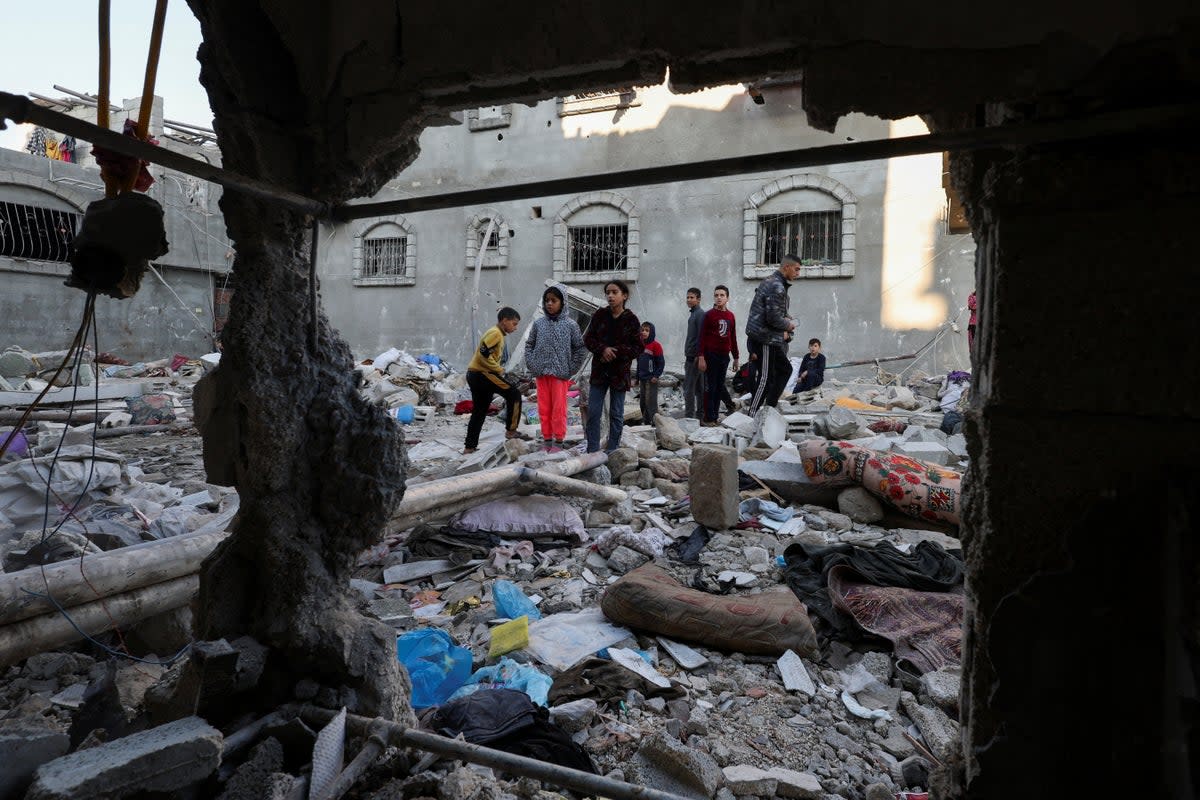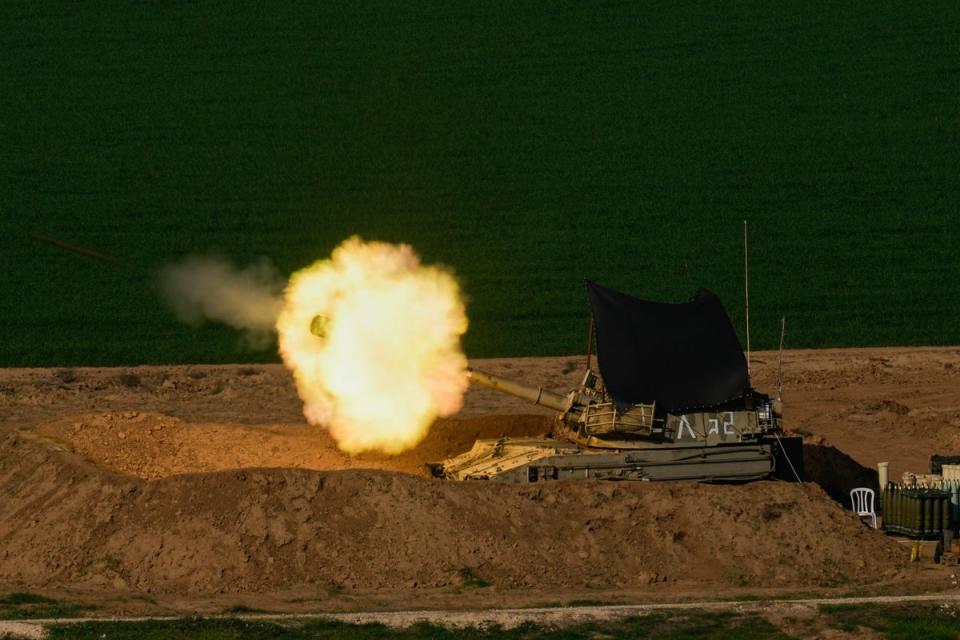Israeli bombardment pushes more Palestinians into southern Gaza: ‘This is not a life’

When an Israeli airstrike hit a residential building just metres from southern Gaza’s Kuwaiti Hospital, the surrounding area – overcrowded with people who have fled other parts of Gaza – sank into chaos.
“It wasn’t a normal airstrike,” says Awad Mohammed Ali Al-Zain, 22, who was sitting near the building when he was hit by shrapnel from the blast. “It was terrifying,” he says.
People in the streets outside the hospital dropped their belongings and ran for cover. Some crouched behind ambulances, others sprinted up the street. A father ran clutching his toddler. Young children burst into tears. A lone donkey that had been towing a cart of supplies turned itself halfway around in the middle of the road as its owners fled for cover – as a burst of further strikes hit the building just a few hundred metres behind it.
Scenes like this shock no one in Gaza any more. Many of the injured were taken into the hospital screaming in agony. Some were treated on the hospital floor. Others were crowded into prayer rooms as doctors moved from patient to patient.
Jamal Hams, the medical director of the Kuwaiti Hospital, tells The Independent conditions there have worsened dramatically in recent weeks. “The hospital doesn’t have the capacity to treat these patients properly,” he says.
“Sometimes we have very severe injuries that force us to push other patients out [of the ward] into the courtyard or into the prayer rooms to make space for them.”
“When our children are found with severe injuries to their heads or torso, when our children are brought into the hospital on the verge of death or permanent disability, this is what hurts the medical team the most,” he adds. “The innocent child sat in his home has nothing to do with this war, nor with politics, nor with security and nor with the military."

The Kuwaiti Hospital is located in Rafah, close to the border with Egypt at the southern tip of Gaza. It is one of the few places in Gaza not under evacuation orders. Airstrikes pounded al-Maghazi and al-Bureij in the centre of Gaza on Sunday, forcing more residents to flee toward Rafah.
Israel has vowed to eliminate Hamas, the Palestinian militant group that controls Gaza, in the wake of the cross-border attack on 7 October that killed 1,200 people, mostly civilians, with another 240 people being taken hostage. Israel’s air and artillery bombardment has killed more than 21,800 people, according to health authorities in Hamas-run Gaza, with many more feared dead in the rubble, and has pushed around 85 per cent of its 2.3 million residents from their homes.
Jamal Hams says infectious diseases are spreading rapidly through Rafah and that the medical team at Kuwaiti Hospital are dealing with large numbers of cases – as well as many patients with long-term illnesses such as diabetes, heart disease and cancer.
“This is not a life,” says Al-Zain of day-to-day conditions in Rafah. “You can’t take a bath, there’s no food, there’s no drink, there’s nothing people want.”
The World Health Organisation has reported climbing rates of disease across Gaza, including a fivefold increase in diarrhoea, as well as upper respiratory infections, meningitis, skin rashes, scabies, lice and chickenpox.
The war and lack of supplies has left 40 per cent of Gazans at risk of famine, the UN agency for Palestinian refugees has said, with Israel having blocked almost all food, fuel and medicine from entering Gaza after the 7 October attack. It said on Sunday it was ready to let ships from some Western countries deliver aid directly to Gaza’s shores after security checks in Cyprus.
“It can start immediately,” foreign minister Eli Cohen told Tel Aviv radio station 103 FM when asked about the Mediterranean corridor. He said Britain, France, Greece and the Netherlands were among countries with vessels able to land directly on the shores of Gaza, which lacks a deep-water port. He appeared to suggest he expected them to do that rather than offload aid in Israel.
Comments from Israeli prime minister Benjamin Netanyahu on Saturday suggest there will be no easing of the conflict soon. He said “the war is at its height” and Israel would have to retake control of Gaza’s border with Egypt – an area now full of civilians. Senior Palestinian Authority official Hussein al-Sheikh in the Israeli-occupied West Bank claimed via social media that Israel taking over the border was evidence of a decision “to completely return the occupation”.
Umm Mohammed, a displaced Palestinian woman sheltering by the border, told Reuters: “We moved here from Khan Younis on the basis that Rafah was a safe place. There is no space in Rafah as it is overcrowded with displaced.”
“If they control the border, where will people go?” she asked, saying this would be “a disaster”.


